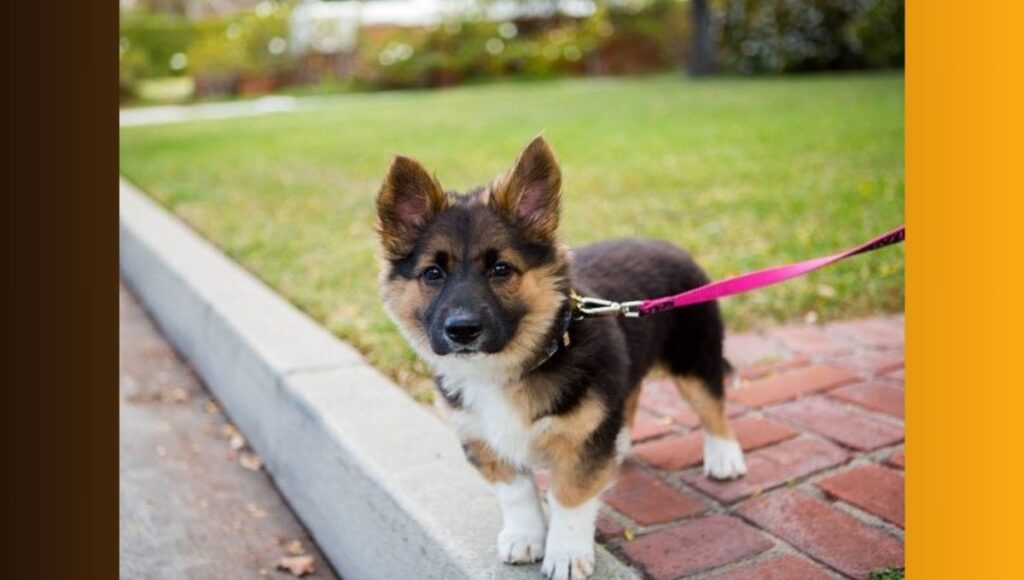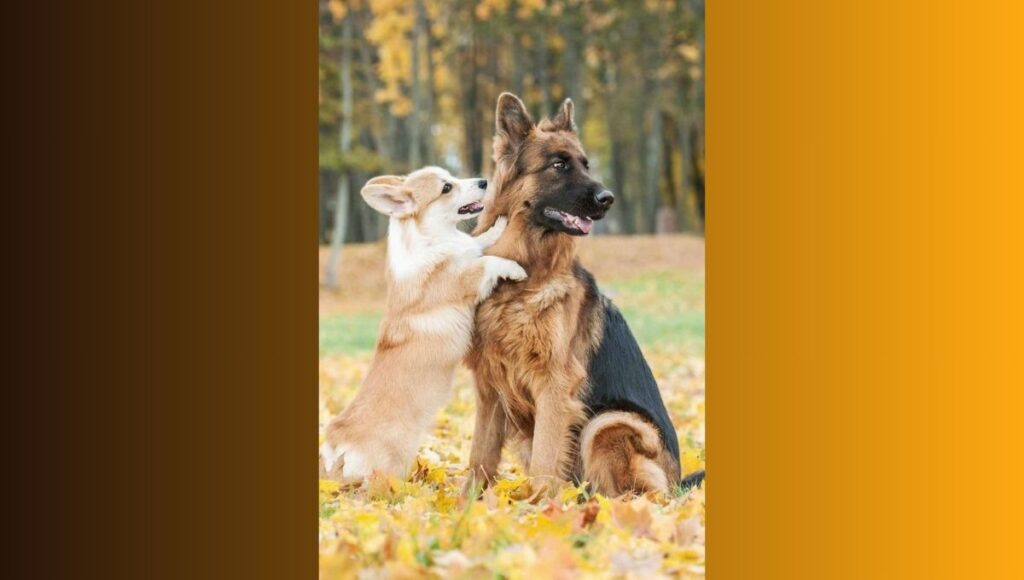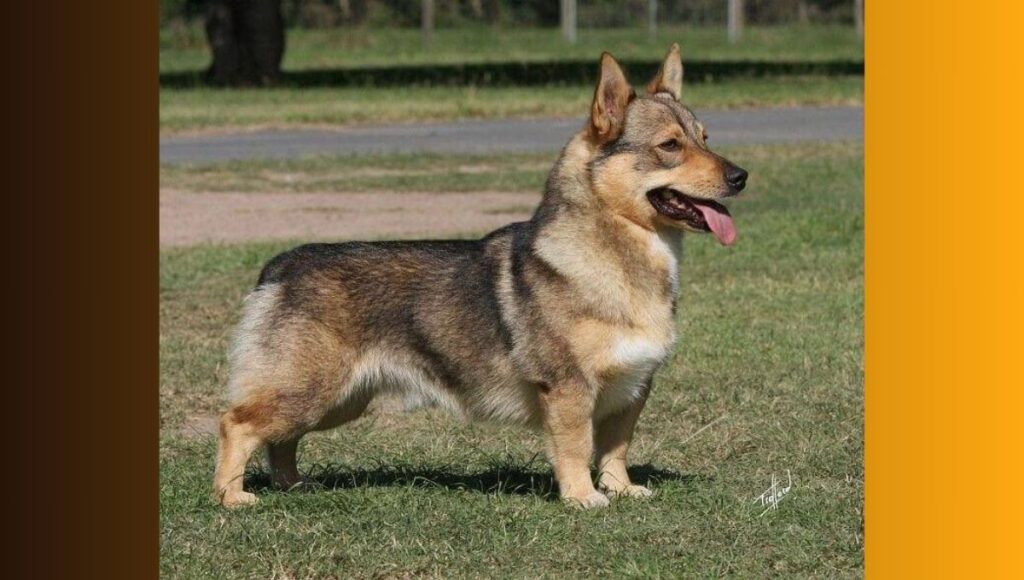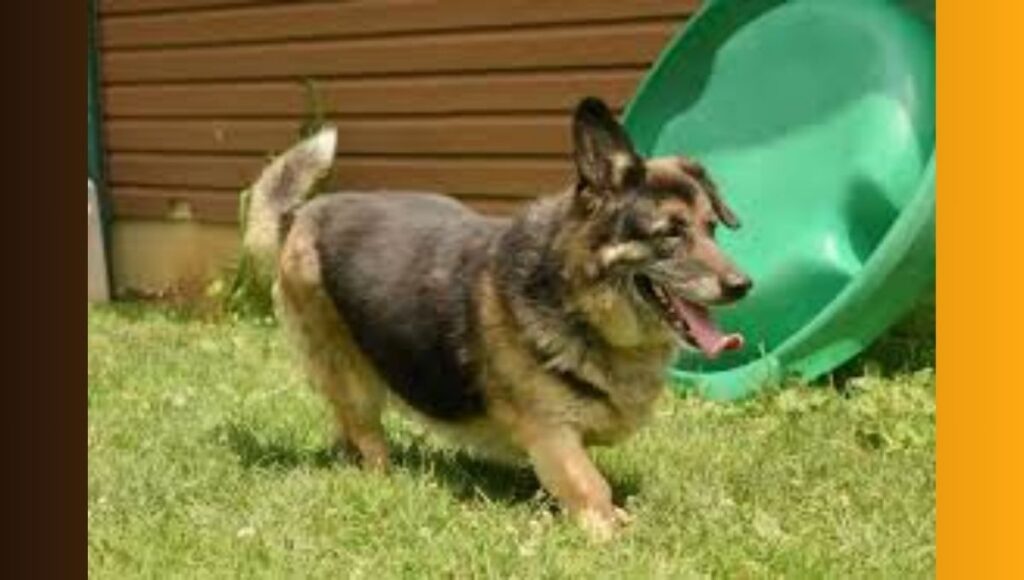Corgi and German Shepherd: The Ultimate Showdown of Canine!
When you picture a bustling dog park, filled with playful pups and wagging tails, two distinct breeds often stand out, the Corgi and German Shepherd. These beloved canines not only showcase striking differences in appearance and temperament but also invite endless fascination for dog lovers everywhere. With their short legs and cheerful demeanor, Corgis are the epitome of charm, while German Shepherds exude strength and loyalty. But what happens when these two worlds collide?
Corgis vs. German Shepherds Characteristics

Corgis and German Shepherds each bring distinct characteristics that make them beloved by dog enthusiasts worldwide. Corgis, with their stubby legs and vivacious energy, are known for their playful demeanor and affectionate nature. They were originally bred for herding, which translates to an intelligent yet sometimes stubborn personality that thrives on mental stimulation. These little pups often act like they own the room, bringing a boundless joy wherever they prance.
On the other hand, German Shepherds exude strength and loyalty that’s hard to match. Renowned for their intelligence and versatility, these dogs excel in various roles, from working as service animals to security companions. Their calm yet protective demeanor makes them excellent family pets while being fiercely devoted to training tasks. A striking blend of agility and power defines the German Shepherd’s movements.
Personality Traits Comparison

When comparing the personality traits of Corgi and German Shepherd, one uncovers a fascinating tapestry of behavior that reflects their unique histories and roles. Corgis often embody the essence of happiness with their affectionate nature. These little dogs thrive in dynamic environments where they can showcase their intelligence through clever tricks or agility courses
German Shepherds bring a blend of loyalty and protective instincts to the table. Recognized as one of the most versatile breeds, they are intelligent problem solvers who excel in working roles such as police or service dogs. Their calm demeanor often masks a strong drive for tasks and duties that make them both dependable guardians and loving family members.
Physical Differences Explained

When comparing the physical differences between a Corgi and German Shepherd, one might first notice the stark contrast in size and stature. Corgis are known for their short legs and compact bodies, with an average height of just 10 to 12 inches at the shoulder, while their weight usually ranges from 25 to 30 pounds. While German Shepherds stand tall at about 22 to 26 inches and can weigh between 50 to 90 pounds, showcasing a much leaner and athletic build designed for endurance.
Corgi and German Shepherd Exercise Levels

Corgis and German Shepherds have notably different exercise needs, reflecting their unique energy levels and temperaments. The compact Corgi bursts with enthusiasm but typically requires less intense workouts than the athletic German Shepherd. While a leisurely daily walk may suffice for a Corgi, incorporating playtime with interactive toys or agility exercises can keep them mentally stimulated and burn off excess energy.
The German Shepherd thrives on high-energy activities that challenge both their body and mind. With roots in protection work and herding, these dogs require regular vigorous exercise to stay healthy and happy. Ideal workouts include long runs, robust fetch sessions, or even obedience training classes that let them showcase their intelligence while also expending energy.
Grooming Requirements for Corgi and German Shepherd

Corgi and German Shepherd, have distinctly different grooming requirements that reflect their unique coat types and characteristics. Corgis boast a double coat with a water-resistant outer layer, which means they need regular brushing, ideally twice a week, to keep shedding manageable and to maintain skin health. This is especially crucial during seasonal changes when their fur goes through intensive shedding cycles.
German Shepherds also possess a dense double coat that requires diligent care to prevent matting and promote essential oils’ distribution across the skin. Regular brushes should become part of your routine at least once weekly, however, increasing frequency during spring and fall will help manage excessive shedding. Both breeds benefit greatly from early grooming education, dogs who associate these routines with positive experiences are more likely to embrace them as they mature.
Best Methods for Each Dog

When it comes to training methods tailored for Corgis, positive reinforcement stands out as the best approach. These intelligent yet stubborn dogs respond exceptionally well to rewards such as treats, praise, and playtime. Integrating fun activities into training sessions can also help maintain their attention since Corgis have a playful spirit. Utilizing short, engaging routines reinforces desired behaviors while building strong bonds without resorting to harsh commands.
German Shepherds thrive on structured training that includes both mental stimulation and physical exercise. These dynamite dogs often excel in obedience courses or agility training due to their high energy levels and keen intelligence. Implementing consistent commands alongside a variety of stimulating tasks helps prevent boredom and reinforces their natural protective instincts.
Common Health Issues

When it comes to common health issues in dogs, Corgi and German Shepherd each have their unique vulnerabilities that pet owners should be aware of. Corgis, with their adorable short legs, often grapple with intervertebral disc disease (IVDD), a condition where the cushioning discs between the vertebrae bulge or rupture. This issue can lead to pain and mobility challenges, necessitating regular veterinary check-ups and a careful balance between exercise and rest.
German Shepherds are prone to hip dysplasia, a genetic condition resulting in improper joint formation that can lead to arthritic changes over time. Maintaining an ideal weight is crucial for these robust breeds, excess pounds exacerbate joint stress and discomfort. Intelligent training methods not only stimulate their minds but also encourage healthy movement patterns.
Corgi-German Shepherd crossbreeds

Corgi-German Shepherd crossbreeds, often affectionately dubbed Corgi Sheps, combine the playful spirit of the Corgi with the intelligence and loyalty of the German Shepherd. This unique mix results in a dog that thrives on companionship, showcasing both an animated personality and protective instincts. With their shorter legs and longer bodies, an endearing trait borrowed from the Corgi they maintain an agile demeanor that can adapt to various living situations.
Conclusion
Both Corgi and German Shepherd have unique qualities that make them appealing to dog lovers. Corgis are excellent companions for families and individuals alike. While German Shepherds bring intelligence and loyalty to the table, making them ideal choices for service roles and active households. While they differ in size and temperament, both breeds offer their own set of joys and challenges. Whether you’re drawn to the lively spirit of a Corgi or the noble presence of a German Shepherd, consider adopting one of these remarkable breeds today!
FAQs
1. What are the main differences between Corgis and German Shepherds?
Corgis are small, sturdy dogs known for their short legs and playful nature, while German Shepherds are larger, strong, and highly intelligent working dogs.
2. How much exercise do Corgis need compared to German Shepherds?
Corgis typically require moderate exercise (about 30-60 minutes daily), while German Shepherds need more vigorous activity (at least 1-2 hours) to stay happy and healthy.
3. Are Corgis or German Shepherds better for families?
Both breeds can be great family pets! Corgis are usually friendly and good with children, while German Shepherds are loyal protectors that thrive in an active family environment.
4. Do Corgis shed as much as German Shepherds?
Corgis shed moderately year-round with heavier shedding during seasonal changes, whereas German Shepherds have a more significant shedding cycle, especially in spring and fall due to their double coat.
5. How do training requirements differ between the two breeds?
German Shepherds often excel in obedience training due to their high intelligence, needing regular mental stimulation; Corgis can also be trained effectively but may have a more stubborn streak requiring patience.
6. Can I keep both a Corgi and a German Shepherd together?
Yes! With proper introductions and socialization, many owners successfully keep both breeds together; just ensure they have enough space and supervision during playtime.
7. What health issues should I be aware of for each breed?
Corgis are prone to obesity and hip dysplasia; meanwhile, German Shepherds may face hip dysplasia as well as degenerative myelopathy, so regular vet check-ups are essential for both.
8. Are Corgis or German Shepherds easier to train for first-time dog owners?
While both can be trained by novice owners, many find that Corgis might require a bit more patience due to their independent nature; however, motivation through rewards works well for both breeds!







